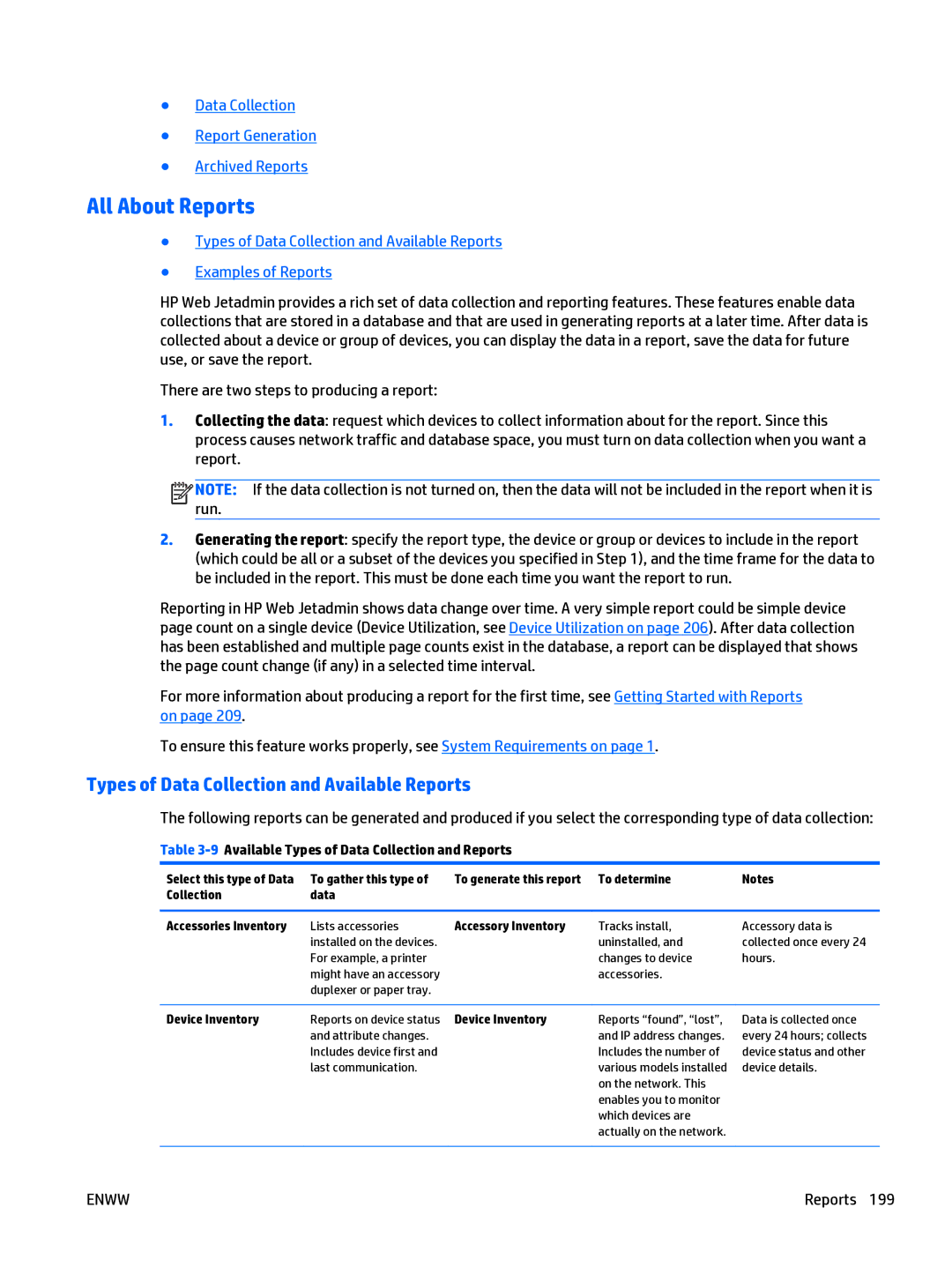
●Data Collection
●Report Generation
●Archived Reports
All About Reports
●Types of Data Collection and Available Reports
●Examples of Reports
HP Web Jetadmin provides a rich set of data collection and reporting features. These features enable data collections that are stored in a database and that are used in generating reports at a later time. After data is collected about a device or group of devices, you can display the data in a report, save the data for future use, or save the report.
There are two steps to producing a report:
1.Collecting the data: request which devices to collect information about for the report. Since this process causes network traffic and database space, you must turn on data collection when you want a report.
![]()
![]()
![]()
![]() NOTE: If the data collection is not turned on, then the data will not be included in the report when it is run.
NOTE: If the data collection is not turned on, then the data will not be included in the report when it is run.
2.Generating the report: specify the report type, the device or group or devices to include in the report (which could be all or a subset of the devices you specified in Step 1), and the time frame for the data to be included in the report. This must be done each time you want the report to run.
Reporting in HP Web Jetadmin shows data change over time. A very simple report could be simple device page count on a single device (Device Utilization, see Device Utilization on page 206). After data collection has been established and multiple page counts exist in the database, a report can be displayed that shows the page count change (if any) in a selected time interval.
For more information about producing a report for the first time, see Getting Started with Reports on page 209.
To ensure this feature works properly, see System Requirements on page 1.
Types of Data Collection and Available Reports
The following reports can be generated and produced if you select the corresponding type of data collection:
Table 3-9 Available Types of Data Collection and Reports
Select this type of Data | To gather this type of | To generate this report | To determine | Notes |
Collection | data |
|
|
|
|
|
|
|
|
Accessories Inventory | Lists accessories | Accessory Inventory | Tracks install, | Accessory data is |
| installed on the devices. |
| uninstalled, and | collected once every 24 |
| For example, a printer |
| changes to device | hours. |
| might have an accessory |
| accessories. |
|
| duplexer or paper tray. |
|
|
|
|
|
|
|
|
Device Inventory | Reports on device status | Device Inventory | Reports “found”, “lost”, | Data is collected once |
| and attribute changes. |
| and IP address changes. | every 24 hours; collects |
| Includes device first and |
| Includes the number of | device status and other |
| last communication. |
| various models installed | device details. |
|
|
| on the network. This |
|
|
|
| enables you to monitor |
|
|
|
| which devices are |
|
|
|
| actually on the network. |
|
|
|
|
|
|
ENWW | Reports 199 |
